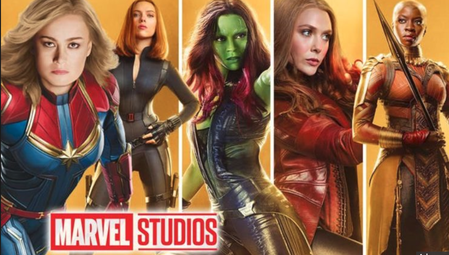 (Image: Marvel) (Image: Marvel) by Rabbi Shira Wallach There’s an incredible moment in the new Avengers movie (don’t worry, no spoilers!) in which all of the women superheroes suddenly materialize on the screen together, united in their collective duty to protect the object that is the lynchpin of the final battle…you might say… the Endgame. And though there are certainly other parts of the film that are meant to draw tears, I found myself suddenly and deeply moved by the moment of feminist solidarity. In the universe of superheroes, women have only recently begun to take center stage. Usually these comic books, television shows, and movies exalt the masculine form: the übermensch of brawn and sometimes brains through which audiences can vicariously experience the satisfaction of vanquishing evil. But we have seen a shift in the approach lately: women are no longer there just for eye candy; rather they are essential to the plot. Perhaps they’re even the protagonist! And they bring both brains and brawn. After so many decades of the male-centric superhero universe, it was poignant to watch the strong and beautiful women take up the whole screen. Tomorrow will bring to a close our second year of Women’s Torah Study, a weekly class in which we reflect on how Judaism engages women. This year, we took a deeper dive into the presence and absence of women’s voices in our tradition, tackling hard questions like: The Torah seems to posit that a woman’s value lies in her ability to give birth. How can women become worth more than that? As preparation to receive the Ten Commandments, the Torah instructs: “do not go near a woman.” Does this mean that women are not the Torah’s intended audience? Women’s involvement in Jewish practice often seems as a supporting role for her family, rather than for her own fulfillment of mitzvot. How can a woman create her own relationship with God and with Judaism, regardless of whether she chooses to marry and have children? Traditional Judaism relegates women to their own side of the mechitzah and off the bimah. How do we encourage women to step forward and lead? Our conversations took us to places expected and unexpected, unearthing deep questions that were always present but never acknowledged. We explored modern Midrashim written by women scholars and rabbis, we learned about societal trends that gave rise to waves of both Jewish misogyny and feminism, and we reflected on how to raise our own voices in response. And though we all emerged at the end with a different image of how we each express our Jewish voices, we are all united by the same approach: that becoming a Jewish feminist means having the freedom to challenge foundational assumptions about gender roles in Judaism. I am profoundly grateful to the group of committed, insightful, passionate women who inspired me every Wednesday. You are all superheroes—and when you assemble before me, I know that our Torah is in good hands.
2 Comments
Rachel Bortnick
4/30/2019 06:18:32 pm
Thanks, Shira, for this beautiful essay. I was very touched.
Reply
Leave a Reply. |
Details
AuthorsShearith Israel clergy, staff and congregants share Archives
April 2023
Categories
All
|

 RSS Feed
RSS Feed